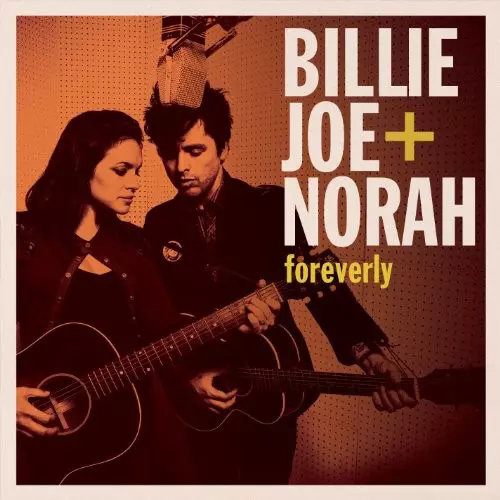I really wanted to love this album.
When I first heard about this venture, I was pumped. It seemed to have all the trappings of a project I would fall in love with immediately. Norah Jones? Yes, please. Billie Joe Armstrong? Duh. A remake of a classic folk album and a unique collaboration between two talented but wildly different artists? I'm in. Now where do I get my copy? For those of you who aren't familiar, Songs Our Daddy Taught Us was released by the Everly Brothers in 1958 and contained a collection of Appalachian folk songs that, true to the name, the brothers learned from their father. Flash forward to 2010(ish)… Green Day front man Billie Joe Armstrong falls in love with the album, pulls jazz singer Norah Jones in for a collaborative reimagining, and boom. Foreverly is the result.
Here's the thing about Foreverly: it's fine. No, really. Armstrong and Jones harmonize quite well together, and the music has that same mellow, dulcet quality the Everly Brothers are known for. But therein lies the problem… it's too similar. Even the addition of female vocals isn't really enough to differentiate it from the original. Now, I love when artists take an album and reinvent it, really make it their own. The Flaming Lips cover of Dark Side of the Moon, Rufus Wainwright's live tribute to Judy Garland… The way these artists are able to take familiar songs and make them new again not only showcases their own talent but rekindles interest in forgotten favorites and allows the listener to appreciate the difference a new voice, a new key or a new instrument can make. But Foreverly is not different. It's not a remake so much as a rerecording. It isn't a bad album, but that's mostly because Songs Our Daddy Taught Us wasn't a bad album either.
That being said, there are a few things to recommend the album. As I mentioned earlier, Armstrong and Jones sing beautifully together. There's no denying their voices blend well and make for very pleasant listening. The opening track, "Roving Gambler," is a personal favorite, with a slightly upbeat tempo and the not-insignificant benefit of being the first in a line of songs that all sound a lot alike. (read: you haven't grown tired of it yet.) "Down in the Willow Garden" is an old, hauntingly beautiful song that I've always felt drawn to despite the incredibly macabre subject. (Boy poisons and stabs girl, throws her body in the river, and then laments his decisions on the way to the gallows. It's a happy little story.) And the final track, "Put My Little Shoes Away," really showcases the pair's vocal talent in a near-a cappella outing, accompanied only by some simple piano. Like many folk albums it's worth spinning on a snowy day, perhaps cozied up on the couch with a cat or two, blissfully ignoring your greater responsibilities. Not that I would know anything about that. Ahem.
Bottom line: if you're an Everly Brothers fan who remembers Songs Our Daddy Taught Us fondly, you won't be offended by this retelling. But then again, if you're a fan who owns the original, there's probably no need to rush out and purchase this carbon copy either.
